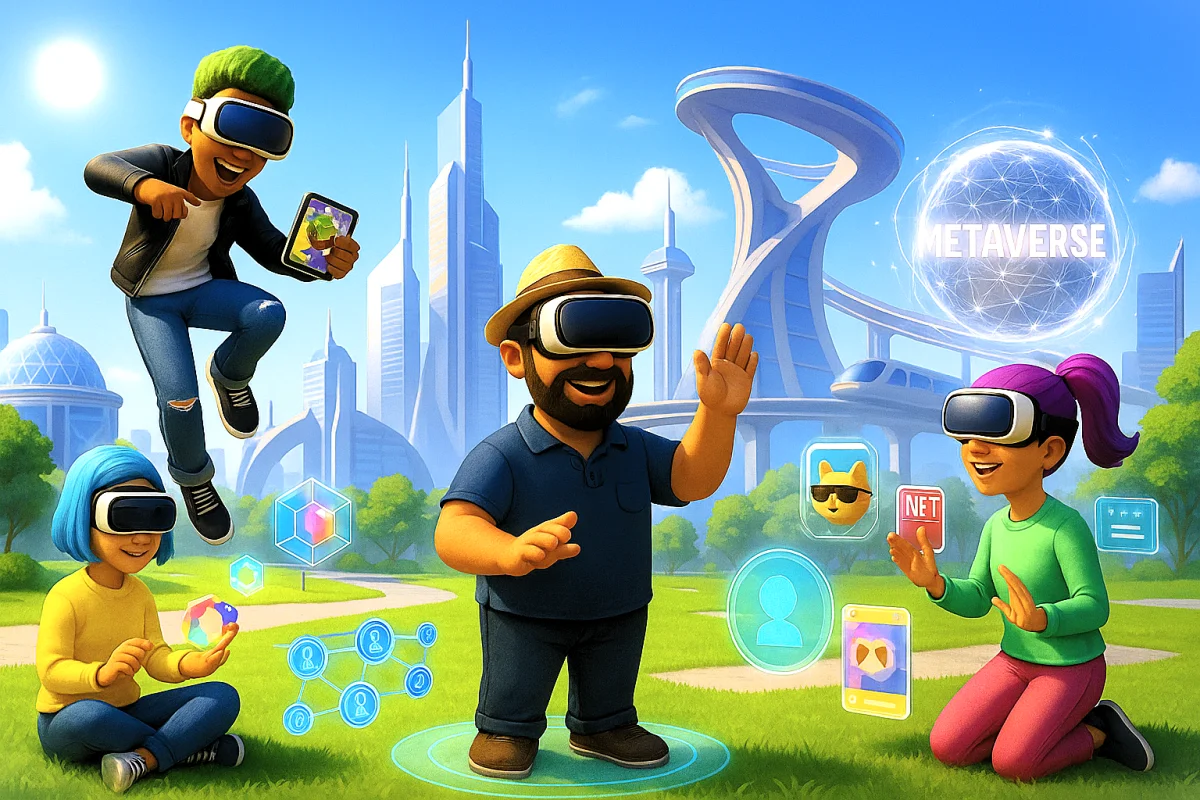The Metaverse and the Future of Gaming: What Opportunities Does the Virtual World Create?
The metaverse is no longer just a concept from science fiction—it is steadily becoming a reality. This is a digital space where people meet, interact, work, and play. The gaming industry is one of the primary driving forces shaping this vision into practice. But how will the metaverse change the future of gaming, and what opportunities will it unlock for players, developers, and businesses alike?

A New Reality for Gaming
In the metaverse, games are no longer viewed solely as entertainment. They transform into platforms for social interaction, economic activity, and creative expression. Players can design their own avatars, participate in virtual events, or even launch digital businesses. This expands gaming into a broader ecosystem, where the experience goes far beyond the screen.
Interactive Experiences
The metaverse emphasizes interactive environments. Gamers can communicate, collaborate, and compete in real time. Virtual concerts, exhibitions, and in-game festivals become large-scale events attracting millions of participants simultaneously. These shared experiences introduce a unique social dynamic that was previously impossible.
Economic Opportunities
The metaverse creates new digital economies. Virtual goods—such as avatar clothing, skins, or unique in-game items—gain real-world value. NFTs and blockchain technologies play a critical role by ensuring ownership rights and authenticating unique digital assets. This allows players not only to spend but also to create, trade, and monetize their own digital content.
Technological Integration
The metaverse depends on advanced infrastructure. AR/VR devices, artificial intelligence, and cloud technologies form the foundation of this digital universe. Games leverage these tools to deliver hyper-realistic graphics, responsive physics, and immersive virtual worlds that simulate real-life interactions.
Ethical and Social Challenges
Alongside opportunities, the metaverse raises important questions. How safe are virtual spaces for users? How will personal data be protected? What impact will immersive digital experiences have on real-world relationships? Policymakers and developers must collaborate to ensure the metaverse is inclusive, fair, and secure for all participants.
Future Outlook
The metaverse in gaming is only the beginning. In the near future, virtual worlds may integrate more deeply with education, work, and daily life. Gaming will likely remain at the forefront of this evolution, as it combines entertainment with functionality to create rich, multifaceted experiences.
Conclusion
The metaverse opens the door to entirely new opportunities in gaming. It transforms how we play, interact, and value digital experiences. By blending imagination with technology, it paves the way for the games of tomorrow. For developers, players, and businesses alike, the metaverse already represents a gateway to the future.
✍ Article Author
- Registered: 26 July 2025, 15:34




 Silent Cat 🐾
Silent Cat 🐾